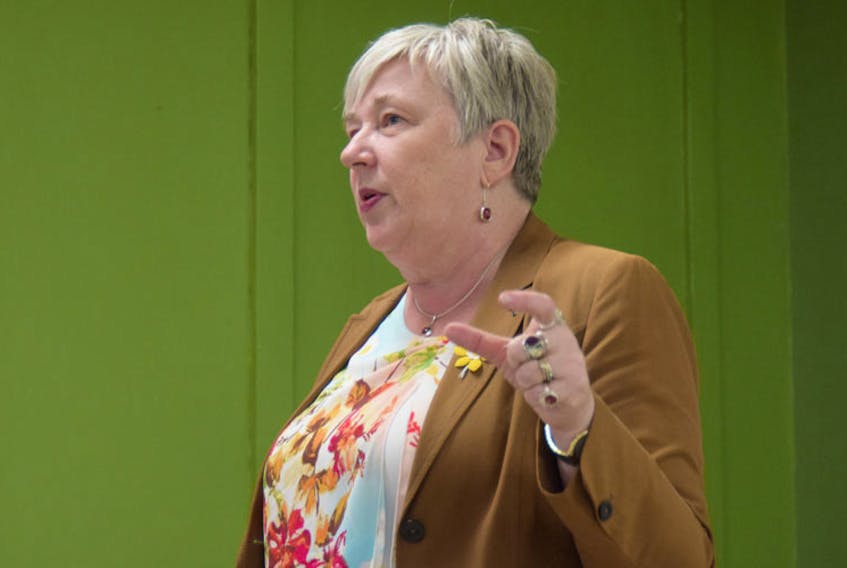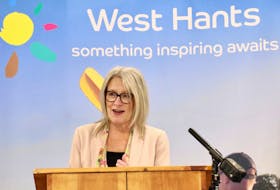Whose job is it to provide dependable, affordable internet?
“You could argue forever about whose responsibility that is,” said Allen Webber, warden for the Municipality of Chester.
He added the answer is complex but the incentive to improve Internet speeds across the South Shore is clear: connectivity equals opportunity.
And right now, municipal governments across the region are working to capitalize on quality Internet, which would open up more business, immigration and educational opportunities.
The problem is there’s a level of politics in providing the Web to a large area but a small population.
MODL Mayor Carolyn Bolivar-Getson noted the municipality has made Internet a priority but can’t make meet the CRTC’s minimum 50 megabits per second (Mbps) download and 10 Mbps upload speeds without help.
“This is a project which municipalities cannot solve on their own,” she said.
“We want to make sure whatever service we put in place, it has the capacity to be expandable.”
Ninety per cent of the country is expected to meet the CRTC’s standards by 2021.
Bolivar-Getson added the municipality allocated $500,000 in this year’s budget for Internet projects but has secured over $5 million in funding through federal programs like Connect to Innovate.
Connect to Innovate is a federal program that will see $500 million invested by 2021 to help Canadians meet the CRTC’s Internet minimums.
Through funding, she explained, the municipality is building nine 40-metre tower sites stretching from Newcombville to Butler Lake.
Two more towers will be built to provide service to Big Tancook Island and the area surrounding the Lunenburg Regional Community Recycling Facility.
The Municipality of Chester has also started projects, including a $150,000 investment to provide Internet services to nearly 4,000 residents.
However, even with their new towers, residents still won’t meet minimum speeds.
“Even though it does not meet the provincial standard for upload speeds, it does increase it to 10 Mbps,” said Webber.
“That’s about an 85 per cent increase of what they currently have.”
David Dagley, mayor for the Region of Queens Municipality, said his municipality has also budgeted $500,000 for Internet projects this year.
“We’re hopeful that in the next 12 months, we’ll have a major portion of our residents connected,” he said.
However, Dagley expressed his concerns over the longevity of the work being done.
“There’s been a problem with the Connect to Innovate federal program in that it wasn’t acquiring fibre optic cable,” he explained, adding the program was laying fibre cable.
“For a few extra dollars, you could lay fibre optic for high-speed service, which you can build upon.”
But when it comes to funding, that’s when things become contentious.
Webber said there was a role for municipalities in addressing poor Internet services but the burden shouldn’t fall on them.
“I’ll speak for myself but I don’t think municipalities believe it's necessarily their issue to solve, per se. It’s more of a national issue than it is a local Chester issue,” he said.
For her part, Bolivar-Getson said it was the municipalities who would miss out on opportunities if basic services like Internet weren’t provided.
She said poor speeds are stopping people from moving and living in MODL, as well as preventing seniors from selling their homes.
“Without Internet, the value of the home depreciates on them,” she said.
Previously, said Bolivar-Getson, there was no business case for independent service providers to go out into rural Nova Scotia.
“They tended to stay close to the hubs or the concentrations of houses which yielded a return for them,” she said.
South Shore-St Margarets MP Bernadette Jordan said it’s up to all levels of government to make a business case for rural communities.
She said involving all stakeholders, including telecommunications companies, was important if rural communities were going to meet the CRTC’s timeline.
“It’s a first step but it’s something we know we have to do,” she said.
@joshrjhealey / [email protected]









